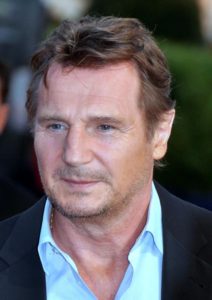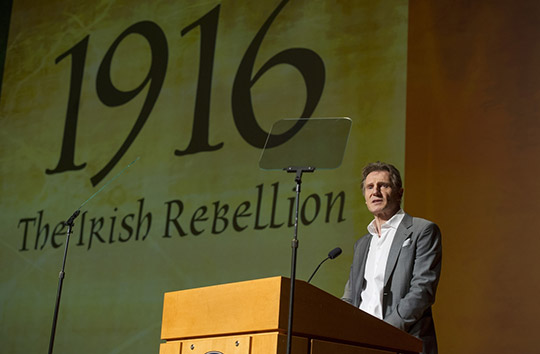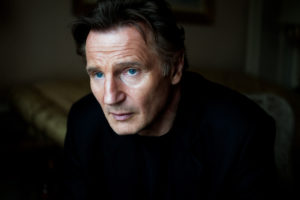
Liam Neeson is a famous Irish actor from Northern Ireland, and a popular actor in Hollywood films currently living in the United States as a U.S. citizen. Born in Ballymena, County Antrim, Northern Ireland he was raised a Roman-Catholic. As a famous actor, well-known around the world, it made sense to include Neeson in the centenary commemorations of 1916, especially with his experience acting as Michael Collins. Just as those who died in the Rising shaped the future of Ireland, celebrities like Neeson have a hand in shaping how that history is remembered.
In order to gain the interest of a more expansive audience, the use of celebrities in these commemorations are significant. Considering the importance of people such as Sean Connolly, Helena Moloney, Maud Gonne, and W.B. Yeats during the efforts of the rising, it is obvious that the efforts of celebrities in the commemorations are just as important.
Neeson’s name is easily recognized around the world, and by having him narrate a documentary such as 1916, an automatic interest is drawn in. Not only does his name draw media attention, but it acts like a sort of keyword in searches or conversations. His involvement illustrates the importance of celebrity involvement in making these histories more accessible, but also a reminder of his home roots and pride in his heritage.
In an RTE Radio 1 interview with Briona Nic Dhiarmada and Liam Neeson, he discusses more why this experience was important to him. Neeson talks about how, in his education in Northern Ireland, “We did not learn about our Irish history and it was only when I was at Queen’s University at 19, and the old internment was introduced and the horrors that were happening then were coming to a head, that I started to educate myself about the history of my country.” Queen’s University has a traditional, but not current, association with Protestant Unionism which classically contradicts with the movement of the 1916 Rising. Neeson had to take it upon himself to learn the important history of Ireland, reestablishing the separation between North and South Ireland during such controversial times.
In narrating the documentary, Neeson learned more about his Irish history and heritage than he had previously known:
“1916 is a significant documentary series. As an Irishman, it is, of course, part of my history…The series puts the Easter Rising in a broader, more international context than has ever been done, and shows how it inspired similar movements around the world.”
Neeson was well known for his role as Michael Collins, making his involvement in this documentary a significant choice. Neeson’s Irish heritage is important to him, and serves as a reminder for those to not forget their roots, especially since he is now a U.S. citizen. Nic Dhiarmada talks about how Neeson was an “obvious choice” because of his “voice of quiet authority” but also because the documentary was based in America, and Neeson was in Hollywood, the connections were clear. Neeson’s “voice of quiet authority” also packs implications of his authoritativeness, in addition to his masculine presence, crucial to the portrayal of this documentary. Without the attraction and resume associated with Liam Neeson, the documentary may not have been as successful globally.
At the premiere, Neeson also read the 1916 poem by Yeats, setting a somber stage for the event while nevertheless drawing more media attention to his involvement. See more of Liam Neeson’s involvement in the commemorative events in his reading of 1916 by Yeats:
See more here about the Michael Collins film
Implications of Masculinity in Film
For more of:


